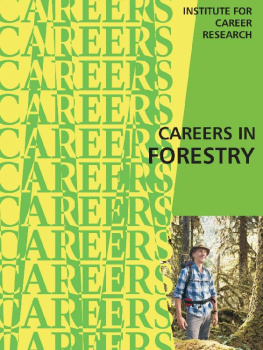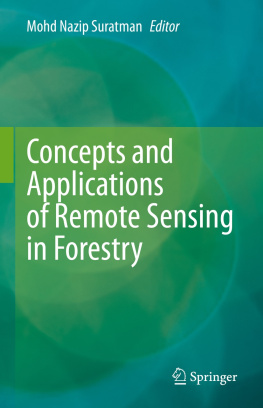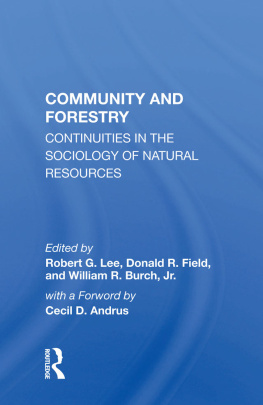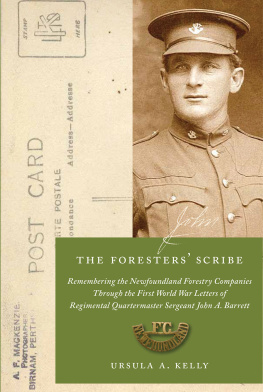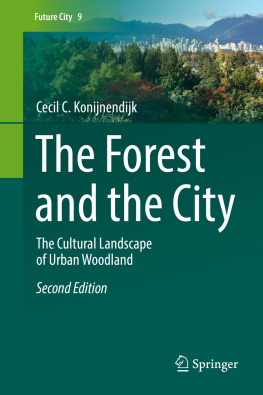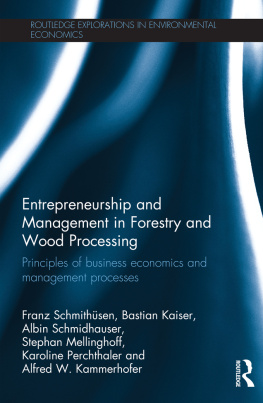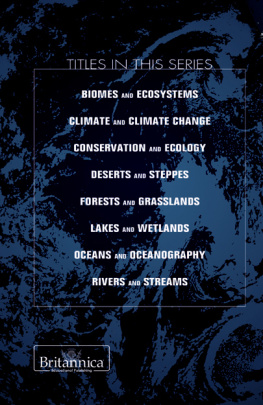
WORK OUTDOORS PUT YOUR CONCERN FOR THE ENVIRONMENT INTO ACTION USE YOUR KNOWLEDGE OF SCIENCE AND TECHNOLOGY
Overview
Traits Required
- Possess physical stamina and endurance
- A logical approach to problem solving
- A sense of direction
- The ability to work in a mixture of solitary or group situations
- Be resourceful
- Diplomatic at times
- Safety-conscious
The Work You Will Do
- Manage forested lands
- Subcontracting with loggers or pulpwood cutters
- Do survey work
- Plan and supervise the creation of access roads
- Supervise the planting and cultivation of new trees
- Detect tree diseases
- Fire protection
Where You Will Work
- Mainly outdoors
- Forest products corporations
- Federal government agency
- State agency or for local government
- Forest industry
- Self-employed as forestry consultants
Education Required
- Associate Degree Program in Forest Technology
- Bachelor of Science Degree in Forestry
- Course studies: General Botany, Chemistry, Public Speaking, Microeconomics Composition, Pre-Calculus, Applied Calculus, General education electives
Pluses
- Working outdoors is a distinct advantage
- Independence
- Very gratifying work
Minuses
- Work outdoors in inclement weather
- Weather can add to transportation difficulties
- Income is not very high
Earnings
- Entry Level with a Bachelor's Degree: $20,000 to $25,000, plus benefits
- Master's Degree could start at $25,000 to $30,000.
- Experienced foresters is about $50,000
Introduction
A career in professional forestry may be a good choice for you. Forestry is the profession of establishing and caring for forests to supply lumber and wood, protect watersheds and wildlife habitats, and preserve recreational areas.
The nation's forest resources have enormous value, both economically and esthetically, and will require careful management in the decades ahead. Most professional foresters work either in a government agency or department, or for a private corporation. Some are self-employed as forestry consultants.
Among the tasks professional foresters perform are:
- Growing trees
- Protecting and managing forests by "tree farming"
- Planning timber harvests
- Researching new uses for forest products
There was a time when working in the forests consisted mostly of hands-on activity, but in the 21st century, human minds will count for more than mere muscle. Conservation of valuable forest resources now involves a method called ecosystem-based forest management. In this way, foresters employ good communication skills and a broad background of knowledge to formulate, communicate and implement long-range plans that provide multiple use of forested lands.
Communication is especially important, considering that many thousands of woodland acres are also home to wildlife, provide recreation, filter the air we breathe, and serve as preservation lands. Activities undertaken during a timber harvest or following a forest fire have direct impact on neighboring lands. Professional foresters are trained to be mindful of actions that could affect soil erosion, water pollution, wildlife habitat, and related issues.
There are approximately 40,000 professional foresters at work in the United States. A significant number of this total will reach retirement age within a decade, providing job opportunities for those now in high school and college.
About a third of all professional foresters work for a federal government agency, the US Forest Service. Another third work for a state agency or for local government. The remaining third works in the forest industry or are self-employed as forestry consultants.
While job opportunities exist in nearly every state, most of the jobs are concentrated in the Western and Southeastern states, where many of the nation's forests are located. Still, there are excellent forestry schools and large pine and hardwood forests in sections of New England, New York State, Pennsylvania and Ohio.
Professional foresters are also in demand in Canada, South America, Northern Europe, and in Southeast Asia. Many large corporations dealing in wood and paper resources own and manage forest lands in other countries, so it is conceivable that you could spend part of your career working far from home. A recent edition of a newsletter for professional foresters listed job opportunities in the forests of Finland, Scotland, and the former Soviet Union.
Two Levels of Education
There are two levels of forestry education, forest technology, which requires two years of post-high school training, and professional forestry, which requires a four-year college degree, plus a qualifying exam. Different colleges and universities across the country reflect the increased scope and complexity of this field by offering specialized course work in a four-year forestry program, such as engineering, biology, management, and even urban forestry.
Forestry Technician
As a forestry technician, you would generally work under the direction of a professional forester. Forestry technicians gather data on such aspects of forested land as size, condition, and content. Technicians spend more time in the outdoors, traveling through sections of forest to observe and take note of tree species and number, the physical condition of species including tree diseases and insect damage, and conditions such as fire danger and factors such as drought, which could affect reforested areas. A professional forester, who then makes decisions about harvesting and caring for the forested tract, analyzes the information a forest technician gathers.
The general rule that states the more education one has, the better chance for job advancement and responsibility, holds true in this case. However, many jobs for forestry technicians include educational benefits, allowing the two-year degree holder to apply those credits to a bachelor's degree program.
The four-year Degree
With a bachelor's degree in forestry, you could be employed as a timber manager, fire suppression specialist or forest ranger. Your choices in private industry also include systems analyst, manufacturing technical representative, nursery manager, procurement officer or plant supervisor. These graduates have also become successful forestry consultants and contractors. Foresters with geographic information systems backgrounds work with satellite imagery and write environmental impact statements. They also write individual forest prescriptions to promote silviculture.
Professional foresters need the ability to understand and communicate complex ideas. Their duties include:
- Drafting agreements and formulating action plans
- Dealing with statistics
- Handling contracts and government regulations
- Writing reports and making speeches
- Making public presentations and even testifying at government hearings
As scientists, professional foresters must learn a great deal about tree species, a field known as dendrology. They must also know about soil and water conditions, nutrients and tree growth, erosion, floods and drought. They study tree diseases and pests, learning how to promote healthy trees. Since forest fire is a major threat to trees, professional foresters receive training in fire prevention and even fire fighting. That training extends to reforestation efforts, after the fire is out.
Next page
